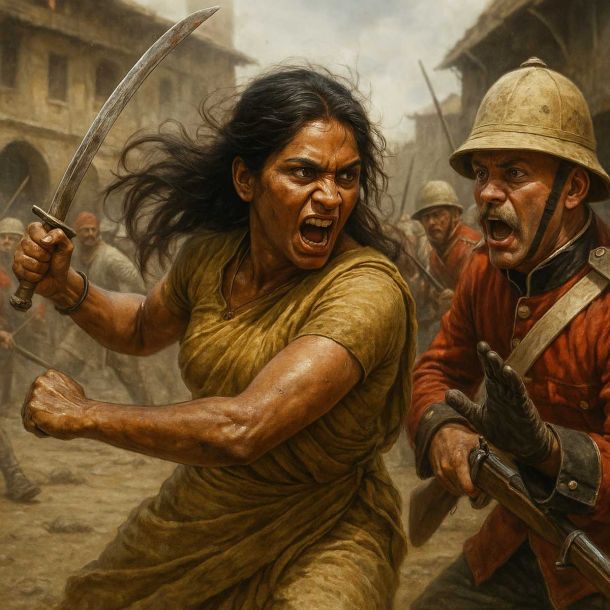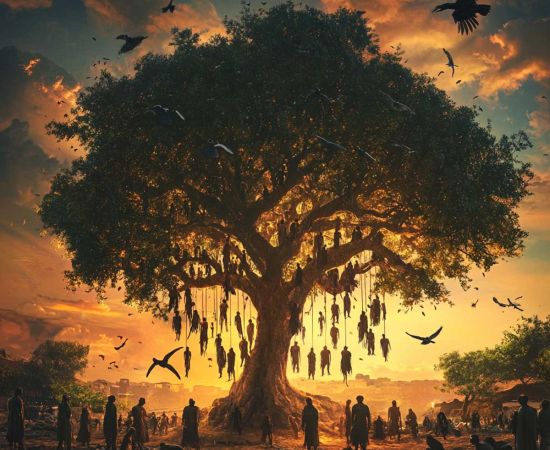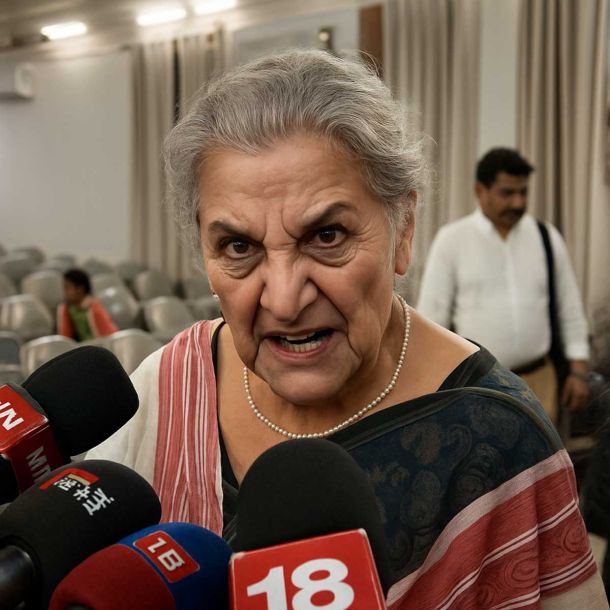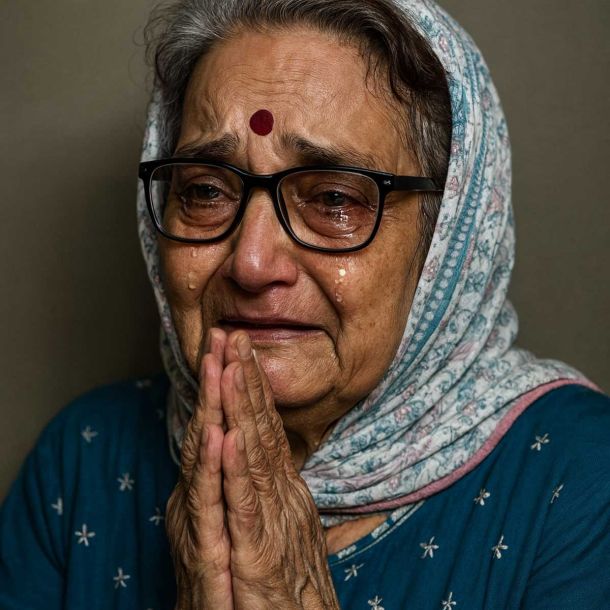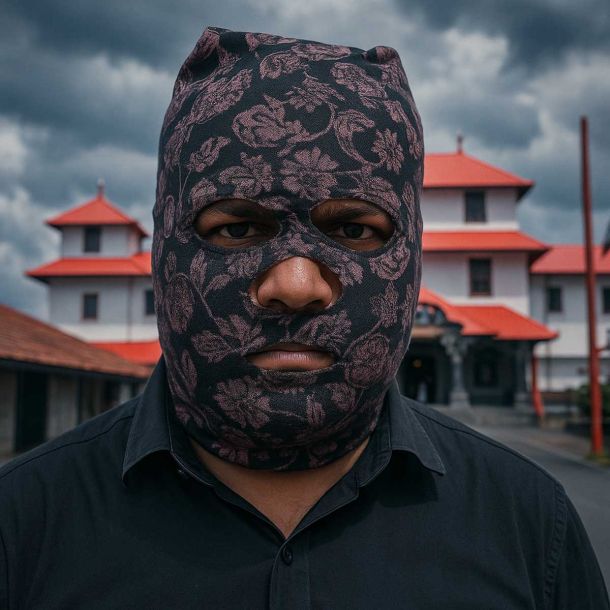MORE COVERAGE
Twitter Coverage
Satyaagrah
Written on
Satyaagrah
Written on
Satyaagrah
Written on
Satyaagrah
Written on
Satyaagrah
Written on
JOIN SATYAAGRAH SOCIAL MEDIA
"एक और": In Agra, Faeem Qureshi sentenced to 10 years for dowry death under IPC 304B after Varsha, harassed for ₹5 lakh, a car, and religious conversion, was found dead; her family alleged murder, but his in-laws acquitted for lack of evidence

In a landmark ruling on 6th February, the Additional District and Sessions Court in Agra delivered justice in the tragic case of Varsha Raghuvanshi, who ended her life in 2021 after enduring relentless cruelty and harassment. The court convicted her husband, Faeem Qureshi, sentencing him to 10 years of rigorous imprisonment under Sections 304B and 498A of the Indian Penal Code (IPC)—charges that specifically pertain to dowry death and cruelty within marriage.
The judgment, provides a chilling account of the systematic torture that Varsha allegedly suffered at the hands of her husband. Faeem Qureshi was found guilty of subjecting his wife to constant abuse, physical and mental agony, and severe harassment for dowry, ultimately leading to her death.
While Faeem bore the legal consequences of his actions, the other accused members of his family, including his father Qayoom Qureshi, mother Firdaus Qureshi, brother Naeem Qureshi, and sister Tabassum Qureshi, were acquitted. The court ruled that there was insufficient evidence to establish their direct involvement in the crime.
However, the prosecution had presented strong allegations that Varsha was not only harassed for dowry but also subjected to religious persecution. It was claimed that she was denied the freedom to practice her Hindu faith and pressured to convert to Islam against her will. Despite the gravity of these allegations, the court determined that the claims lacked substantial evidence, leading to the dismissal of the religious persecution aspect of the case.
The conviction of Faeem Qureshi stands as a grim reminder of the persistent menace of dowry-related abuse, but the dismissal of the religious persecution claims opens a broader debate on the challenges of proving coercion in interfaith marriages.
The case highlights the importance of thorough evidence collection and the difficulties survivors or their families face in securing justice, especially in complex cases involving both dowry harassment and religious coercion. While Faeem has been sentenced, the broader implications of religious persecution and forced conversions in such cases remain largely unaddressed.
|
What is the case?
The case dates back to 12th November 2021, when Varsha Raghuvanshi was found dead in her marital house under suspicious circumstances. Her family later came forward with grave allegations, stating that she had suffered months of severe abuse, both physical and psychological, all centered around repeated demands for dowry.
Following her tragic death, an FIR was lodged by Varsha’s brother, Dushyant Raghuvanshi, in which he named her husband and in-laws as the accused. In the complaint, Dushyant alleged that his sister was constantly harassed for ₹5 lakh and a car as dowry. He further stated that when these demands were not fulfilled, Varsha was subjected to intense physical and mental torture. The complaint also mentioned a chilling warning allegedly given to her by her in-laws: if she failed to bring a dowry and a car, she would be treated as a servant and would never get the status of a wife.
The complaint painted a distressing picture of isolation and deliberate financial neglect. It stated that Varsha was not given any financial support from her husband, making her entirely dependent on her in-laws, who, in turn, forced her to renounce her Hindu faith and embrace Islam. It was further alleged that she was compelled to cook and eat meat despite her religious beliefs.
One of the most alarming aspects of the complaint was the claim that four months before her death, Faeem forcefully made Varsha sign blank stamp papers. According to Dushyant, Faeem warned her that if she did not fulfill their dowry demands, he would divorce her and kill her.
During the hearing, multiple witnesses stepped forward, revealing that Varsha was regularly mocked for performing pooja and was insulted for following Hindu traditions. Some of them testified that she was allegedly warned that if she continued to refuse to embrace Islam, it would cost her life.
The night of 12th November took a devastating turn. At around 6:30 PM, Varsha’s family received a phone call, informing them of her sudden death. Her in-laws claimed that she had died by suicide. Shocked and grief-stricken, her family rushed to her marital home, where they found her lifeless body lying on the floor. A chilling detail in the complaint was that her husband and in-laws were nowhere to be found in the house at the time. Moreover, Dushyant stated that neither he nor the police saw Varsha hanging, raising suspicions about the true nature of her death.
The unnatural circumstances surrounding her death immediately led to a police case being registered, invoking stringent sections of the IPC and the Dowry Prohibition Act. In their complaint, Varsha’s family strongly contested the in-laws’ claims, arguing that she was murdered and later hanged to make it appear like a suicide.
|
Witness Testimonies and Medical Findings
As the trial progressed, multiple witnesses stepped forward, providing statements that depicted the harrowing final months of Varsha Raghuvanshi’s life. Her brother, Dushyant Raghuvanshi, was among the primary witnesses, recounting distressing conversations he had with Varsha over the phone. He testified that she had confided in him about the relentless torture she suffered daily. According to Dushyant, Varsha specifically mentioned that she was beaten for not bringing dowry and for refusing to convert to Islam.
Dushyant further accused Faeem of Love Jihad, alleging that he had coerced his sister into an affair before running away with her to get married. He also informed the court of the derogatory language used against Varsha by her in-laws, stating that they frequently referred to her as ‘Kafir ki aulaad’ (daughter of a Kafir).
Her mother, Manorama, and sister, Khushboo, also testified in court, confirming the religious persecution Varsha faced within her marital home. They informed the court that her in-laws constantly humiliated her for practicing Hindu customs. They recounted how she was repeatedly insulted for performing pooja and was explicitly told that idol worship was forbidden.
In a particularly disturbing conversation, Varsha once told her mother over the phone that if she did not convert, she would not survive in the house. These statements, given under oath, painted a dark and oppressive environment in which Varsha lived.
The investigating officer’s findings further bolstered the prosecution’s case. The police noted that the crime scene appeared manipulated, raising serious doubts about the in-laws' claims of suicide. The officer pointed out that although Varsha was found hanging, there were struggle marks on her body, suggesting a possible altercation before her death.
However, forensic experts presented a more complicated analysis. The post-mortem report confirmed that Varsha died due to asphyxia caused by hanging. The report explicitly stated that there were no external injury marks on her body, apart from ligature marks around her neck.
The defence used this forensic evidence as a critical argument. A forensic expert testified that there were no visible signs of struggle or external trauma that could indicate homicide. The absence of bruises or wounds before death was emphasized by the defence to argue that Varsha had not been physically assaulted.
The court took these medical findings into account but also recognized that psychological and emotional harassment played a significant role, especially in cases related to dowry deaths. While forensic evidence did not establish physical violence, the mental and emotional torment she endured remained a crucial factor in the case.
|
The Defence Claimed Varsha’s Family Harassed Them
During the trial’s argument phase, Faeem Qureshi defended himself, claiming that it was Varsha’s family who harassed them. He asserted that her relatives frequently contacted her, expressing disapproval of her interfaith marriage.
According to Faeem, Varsha had converted to Islam and was renamed ‘Zoya’ after marriage. He alleged that her family would call her and subject her to emotional distress over her marriage. One of their main objections, he claimed, was that her interfaith marriage had made it difficult for her younger sister to find a match.
Furthermore, Faeem argued that Varsha was fully aware of his religion before marriage and had accepted it. He maintained that he had never harassed or assaulted her and refuted all allegations of physical abuse, religious coercion, or dowry harassment.
This argument by the defence attempted to shift the blame onto Varsha’s family, portraying them as antagonistic towards her decision to marry a Muslim. However, the prosecution countered these claims with witness testimonies, call records, and Varsha’s prior statements, which indicated continuous harassment from her husband and in-laws.
The Judgment
After examining all the evidence and testimonies, the court ruled in favor of the prosecution, concluding that Varsha Raghuvanshi was subjected to continuous dowry harassment and cruelty. The court held Faeem Qureshi directly responsible for her death, recognizing that his actions, whether through direct physical harm or relentless psychological abuse, significantly contributed to Varsha’s tragic demise.
The court took into account Varsha’s repeated complaints to her family regarding the cruelty she endured. Based on the testimonies, call records, and documented interactions, the court determined that her death was not accidental but a result of sustained abuse. The verdict specifically highlighted that the legal requirements under Section 304B of the IPC were met, as Varsha had suffered dowry-related harassment ‘soon before her death,’ fulfilling the conditions necessary for a dowry death conviction.
However, when it came to other accused individuals—Faeem’s family members—the court found the evidence insufficient. Despite the victim’s family firmly believing that her in-laws played an equal role in the abuse, the court stressed that mere familial relationships do not automatically implicate someone in a crime. The prosecution failed to present any direct evidence proving that the in-laws were actively involved in or instigated the violence against Varsha.
The court referred to legal precedents, emphasizing that in cases of dowry deaths, the burden of proof against in-laws must be beyond reasonable doubt. While suspicions against them were strong, the lack of substantial material evidence led to their acquittal. The court ruled that without concrete proof linking the in-laws to acts of violence or coercion, convicting them would not be legally justifiable.
Another major aspect discussed during the trial was the allegation that Varsha faced religious coercion. Several witness testimonies stated that Varsha was discouraged from performing pooja and pressured to change her faith. However, the court noted that no independent witness, audio recording, video proof, or written communication supported these claims.
As a result, the court declined to convict the accused under Sections 295 and 298 of the IPC, which deal with religious persecution and insult to religious beliefs. The court made a critical observation regarding the lack of physical evidence, stating that no Hindu religious idols or pooja-related materials were found at Varsha’s marital home, contradicting the claim that she actively practiced Hindu rituals there.
Additionally, the court remarked that Varsha had already converted to Islam before marriage. Therefore, allegations that she was forcibly converted after the wedding were deemed unsubstantiated. While witness testimonies suggested that she faced religious humiliation and pressure, the court held that without independent verification, digital proof, or a formal complaint from the victim herself, these claims could not be upheld beyond reasonable doubt.
|
Punishment for the Convicted Accused
The court pronounced a stringent punishment for Faeem Qureshi, holding him accountable for the dowry death of his wife, Varsha Raghuvanshi. Under Section 304B of the Indian Penal Code (IPC), which specifically deals with dowry deaths, Faeem was sentenced to ten years of rigorous imprisonment.
In addition to this, the court also found him guilty under Section 498A IPC, which pertains to cruelty against a woman by her husband or his relatives. For this offense, Faeem was sentenced to two years of rigorous imprisonment and imposed a fine of ₹20,000. The court further ruled that if he failed to pay this fine, he would have to serve an additional three months in prison.
Apart from the IPC charges, the court also found Faeem guilty under Section 4 of the Dowry Prohibition Act, which criminalizes the demand for dowry. Under this law, he was sentenced to another two years of rigorous imprisonment and fined ₹20,000. Similar to the previous fine, the court ordered that non-payment would result in an extra three months of imprisonment.
In its final ruling, the court clarified that all these sentences would run concurrently, ensuring that Faeem would serve the longest term imposed—ten years of rigorous imprisonment. Furthermore, the court acknowledged the time he had already spent in jail during the trial and ordered that this duration would be adjusted against his total sentence.
 Support Us
Support Us
Satyagraha was born from the heart of our land, with an undying aim to unveil the true essence of Bharat. It seeks to illuminate the hidden tales of our valiant freedom fighters and the rich chronicles that haven't yet sung their complete melody in the mainstream.
While platforms like NDTV and 'The Wire' effortlessly garner funds under the banner of safeguarding democracy, we at Satyagraha walk a different path. Our strength and resonance come from you. In this journey to weave a stronger Bharat, every little contribution amplifies our voice. Let's come together, contribute as you can, and champion the true spirit of our nation.
 |  |  |
| ICICI Bank of Satyaagrah | Razorpay Bank of Satyaagrah | PayPal Bank of Satyaagrah - For International Payments |
If all above doesn't work, then try the LINK below:
Please share the article on other platforms
DISCLAIMER: The author is solely responsible for the views expressed in this article. The author carries the responsibility for citing and/or licensing of images utilized within the text. The website also frequently uses non-commercial images for representational purposes only in line with the article. We are not responsible for the authenticity of such images. If some images have a copyright issue, we request the person/entity to contact us at This email address is being protected from spambots. You need JavaScript enabled to view it. and we will take the necessary actions to resolve the issue.
Related Articles
- In yet another horrific incident of grooming jihad Mohammad Yasin, a supplier of ayurvedic medicine killed his second wife ‘Zara’ earlier a Hindu girl 'Shiva Vishwakarma': Left their three-year-old girl child outside the house
- In Meerut, Shamshad, posing as "Amit Gurjar" brutally ended Priya & her daughter Kashish’s lives, entombing them beneath their own home—a grisly discovery made by police, revealed through the relentless pursuit of justice by Priya's loyal friend, Chanchal
- Mass religious conversion racket reaches Gujarat: How Santosh went missing and returned as Abdullah
- In another shocker, Supreme Court quotes 'every sinner has a future' and commutes death sentence of Mohd Firoz for rape & murder of 4-year-old girl: Child brutally assaulted, two teeth broken while smothering after rape
- "अंदाज़-ए-मोहब्बत": Priyanka, a Hindu girl from Sultanpur, was brutally strangled to death by Salman, Shahenshah, Sarwar, and Javed after she demanded marriage, all four arrested in a dramatic police encounter with illegal weapons in their possession
- ‘Go meet Waseem, marry him, convert to Islam’: 3 arrested in Alwar, Rajasthan for forcing Hindu sisters for relationship with Muslims, Sakina said that if they befriended Muslim boys, they would get money, and threatened to kill if they refused to comply
- "आशिक़ आवारा": In Pratapgarh, Qadir Musalman fatally stabbed a Hindu woman Jyoti to death, police never intervened despite her father’s repeated earlier complaints, her sister Pushpa's pleas for help were ignored by neighbors; Qadir remains at large
- "दिलजले": Love Jihad in Uran, 22-year-old Yashashree Shinde was brutally murdered by Dawood Sheikh, her decomposed body found with severe mutilation of genitals & face near the Uran-Panvel railway line; Sheikh arrested at the Maharashtra-Karnataka border
- In the interpretation of Islam, any pictorial representation of Prophet Muhammad is an anathema, something that is strictly prohibited and even regarded as ‘blasphemy’ and calls for beheading
- Jauhar of Rani Padmini and the enduring Muslims legacy of enacting necrophilia act of gang raping dead bodies
- 23 Jan to 29 Jan - 2022 - Hindus under attack: Bulletin roundup of persecution, discrimination, and hate crimes against Hindus
- While Hindus are at rest, one peaceful community is working overtime under the sentiments of Land Jihad to bring Indian Railways under Waqf Board
- Supreme Court dismisses plea seeking protection of Hindus from the Muslim community in Mewat
- "अब आयो ऊंट पहाड़ नीचे": A Bareilly court convicts Mohammed Alim for Love Jihad, tricking a woman into conversion and abortion, giving him life in prison, penalizing his father, and warning of conversion threats like in Pakistan and Bangladesh
- "शफीक और मेरा प्यार फेविकॉल का जोड़": Shafiq Ansari gruesomely slits throat of Hindu girlfriend with a knife that he bought to peel apple for her & pushed her body down a hill, had spent last night together, was ‘upset’ because she was not talking to him

